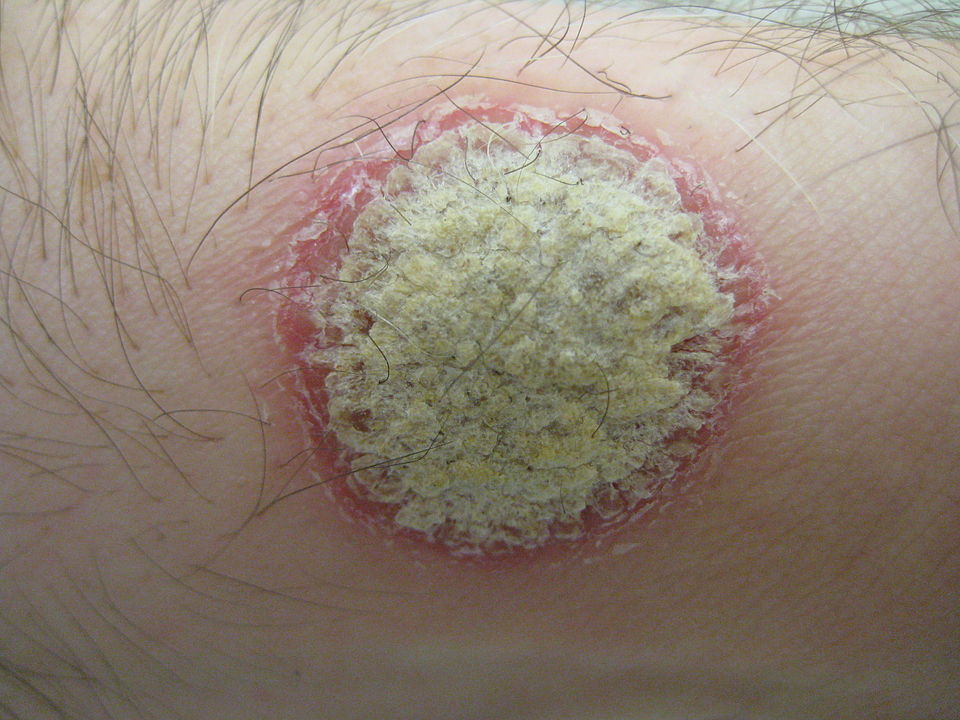
Considered to be the trigger for psoriais, the immune messenger molecule Interleukin-12 (IL-12) has now been shown to actually cause the skin disease but in fact protects against it. This finding also explains why common psoriasis drugs that block the messenger show insufficient treatment efficacy.
Psoriasis is a chronic inflammatory autoimmune disease that manifests as red, scaly skin patches. No causal treatment for the disease exists, but the symptoms can be significantly alleviated with modern therapies. The development of the skin disease arises from complex changes immune cell networks and the messengers they use for communication. Clinical trials showed that newly developed drugs that blocked only IL-23 are more effective than previous treatments targeting both IL-23 and IL-12 in psoriasis patients, but why this was so was not known. Now, researchers at the University of Zurich (UZH) have uncovered the underlying molecular mechanisms.
From human and mouse studies, they found that various cell types in the skin are also equipped with receptors for IL-12. Not only the T cells of the immune system, but also keratinocytes, horn-forming skin cells that build up the epidermis, can thus recognise the messenger. In fact, the recognition of interleukin-12 by these skin cells was responsible for the protective effect of the messenger, as the researchers found out. “Interleukin-12 is essential for the normal, physiological function of keratinocytes. For example, it prevents the increased cell division observed in psoriasis,” explained group leader Sarah Mundt from the Institute of Experimental Immunology at UZH.
“These results surprised us, because so far drugs for the treatment of psoriasis also aim at blocking interleukin-12,” said immunology professor Burkhard Becher.
“Our findings indicate that blocking IL-12 is not advisable, and such drugs should therefore no longer be used to treat psoriasis patients,” advised first author Pascale Zwicky, PhD student. Accordingly, psoriasis drugs should only block the messenger substance IL-23, but no longer IL-23 and -12 together.
The UZH researchers’ findings could be important for the treatment of other diseases. “The combined blocking of IL-23 and -12 is also used in the treatment of chronic inflammatory bowel diseases and psoriatic arthritis,” said Prof Becher. “In these diseases, the role of IL-12 has not yet been sufficiently studied. But here, too, a protective role of the messenger substance is possible.”
Source: University of Zurich

